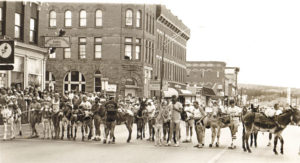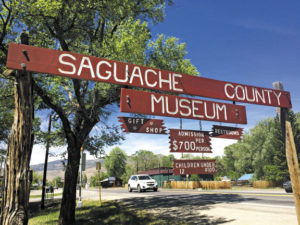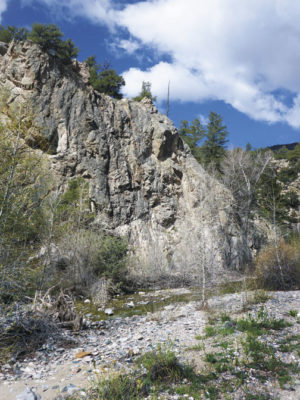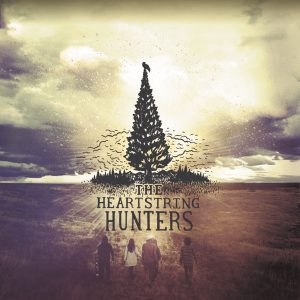By John Mattingly
During a recent visit to the pharmacy, I learned my Medicare Part D had been terminated due to my “death.” I called the provider to correct the mistake, but a cheerful service specialist verified their records showed I was deceased. No further information available.
A call to the Social Security Administration confirmed my status as deceased. The specialist expressed no surprise or curiosity, offering the explanation that, “This happens; Our system makes mistakes. But you should know that your identity may have been stolen by a person who then died.” He directed me to go to the local Social Security office in person, with two forms of photo ID and a birth certificate.
I’d never considered the complications resulting from an identity thief dying with a stolen identity, killing two birds with one stone. If I have but one photo ID, am I half alive? On the other end of the rainbow, when I Google my full name, there are several thousand humans who share it, many of them deceased. Though improbable, it is possible that The System, in a tangle of death certificates, digits and passwords, cross-threaded me with a dead person of my name. Improbable is not impossible.
[InContentAdTwo] Both identity theft and mistaken death put the burden of proof on the perpetrated, not the perpetrator, for correction. Proving a negative is a logical challenge, but proving that I am alive, as a positive assertion, should be incontestably logical. Not so fast.
People fake their own death to dodge debts, collect life insurance, boost the price of their art, and meddle with history (Of Laughter and Forgetting by Kundera). They also fake death for strategic reasons, such as out-performing Banksy, going undercover, spying, or following their dreams six feet under.
In the confusion over being told I was dead, I may have overlooked the opportunities presented by a painless death. My wife collects death benefits and when health care is needed, there should be a big discount for telling doctors, “Don’t worry about killing me. I’m already dead.” And no worries if caught on camera when robbing a bank. “I could not have been there because, at the time of the robbery, I was dead.” Imagine the posters: WANTED: DEAD and ALIVE.
And imagine being at your own funeral. Literature and movies have been reliably fond of this topic. Our Town and Mark Twain; Ghost, Casper, and The Two Husbands of Dona Flor all come to mind. Only at one’s own funeral can one expect to hear the best about his or her life, “He was a genius who benefited every living human being on earth …” So, death isn’t all bad, if only we actually do get to enjoy the aftermath.
Faked deaths are a staple among long-con con artists who named it: cacklebladder. A typical cacklebladder involves luring a greedy, rich person to bring money to a location for a corrupt – or dubious – exchange, where a fake murder takes place and the money bags are switched in the confusion. The greedy rich person is left holding an empty bag – as did Gondorf in The Sting and Samuel Jackson in Jackie Brown – but the mark can’t go to the law because of their reputation or social position.
But in this case, I’m not faking my death even though there are many potential reasons for doing so, which is why The System can justify suspicion. Oddly enough, the opportunities provided by being both dead and alive are enough to create concern that a bureaucracy could effectively steal one’s identity through a decease and desist, whether accidental or intentional. Certain folks in D.C. might be motivated to reduce both spending and numbers of uninsured in the new Healthcare bill by simply removing people from the list of the living. Privatize, then subject Social Security to necrosis.
I don’t credit such a conspiracy with much capital, even though humans are capable of much worse. More than likely, my unexpected death is a mistake in The Dense State, the black hole of computer glitches, something we have all come to expect and tolerate. That said, if the explanation is, the computer did it, I’d like to speak to the computer. Please.
News of my unexpected death happened on a Friday, so no action was possible until the following Monday. Over the weekend I lost interest in a quick correction. Whether a person is dead now or later is of no moment. From the point of view of the universe, the time between the birth and death of a human being is too small to sub-divide, like a boson. If bosons are pixels and WIMPs* are in charge, humans’ place in the universe may be infinitely full of surprises.
Worse case, what’s the hurry to confirm being alive when that only confirms you will die some day? The day of your death is the first day of the rest of your absence. You were absent for about fourteen billion years and will be absent for another fourteen billion, at least.
The longer you live, the more dead people you know.
Points to ponder: Everyone, everywhere, everything, ends (Six Feet Under). “Death is the end of everything.” (Susan Sontag). “Without a deadline, nothing comes to life.” (Mirage Cemetery headstone), “Death animates more than life itself.” (unknown).
*(WIMps) Weakly interacting massive particles, aka Dark Matter and Dark Energy that comprise about 95 percent of the universe and about which science knows very little.
John Mattingly cultivates prose, among other things, and was most recently seen near Moffat.




